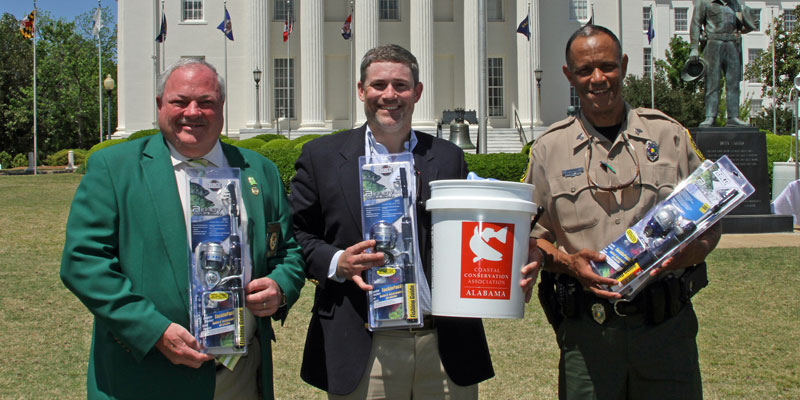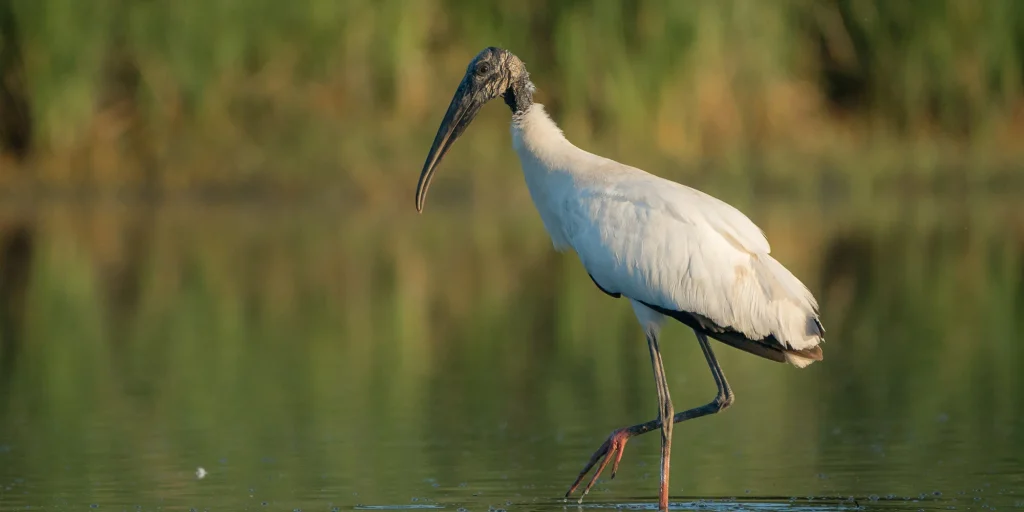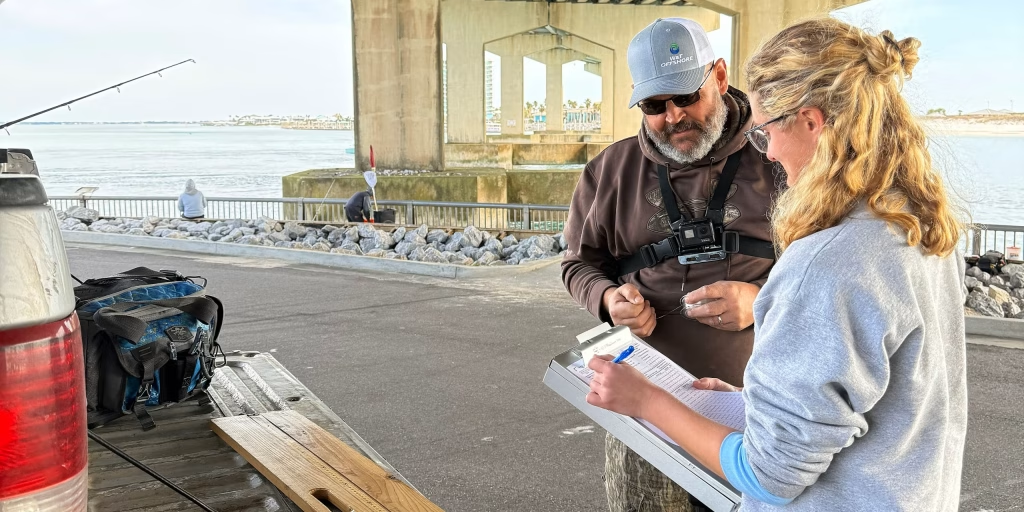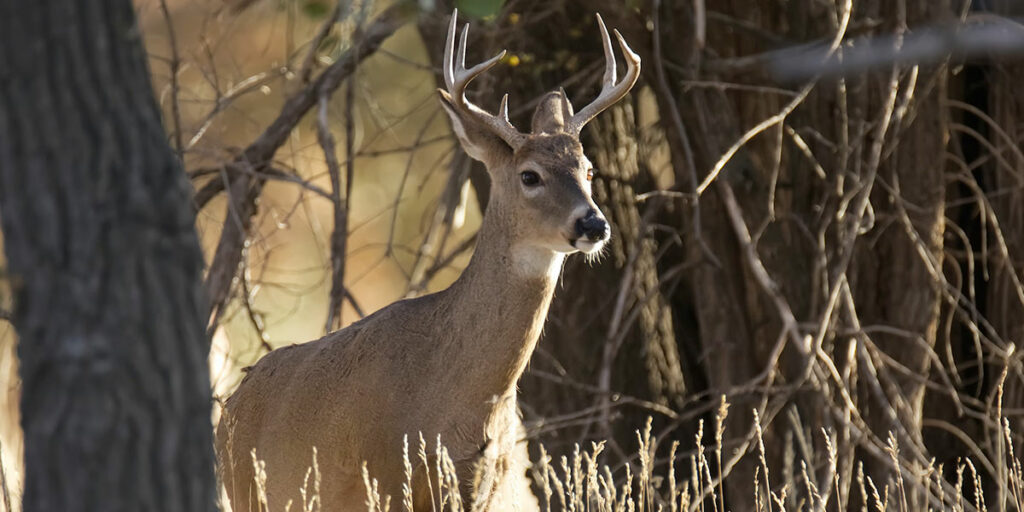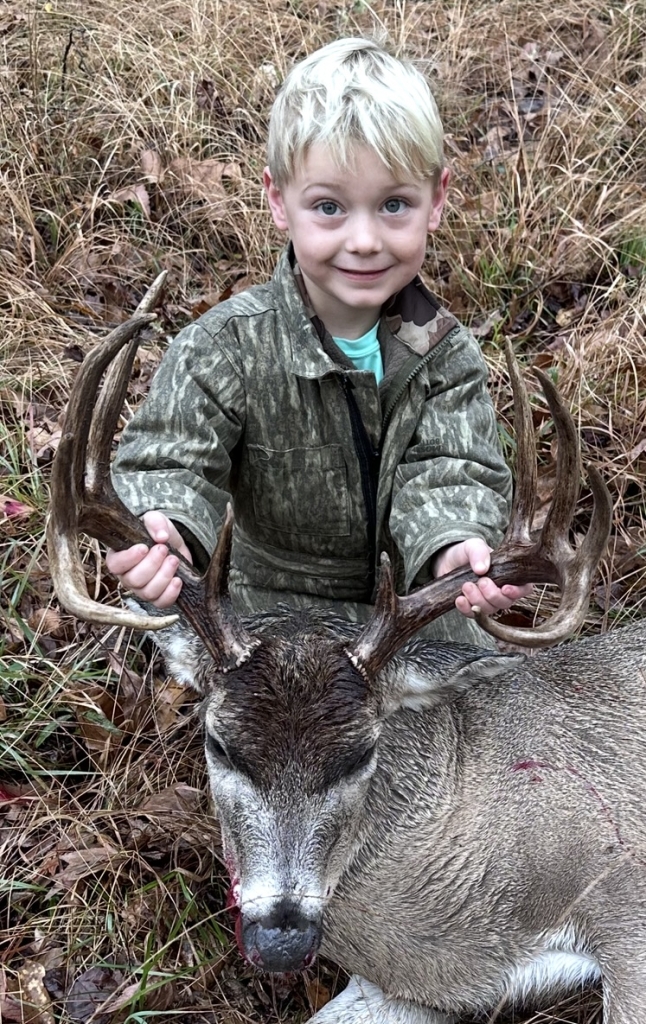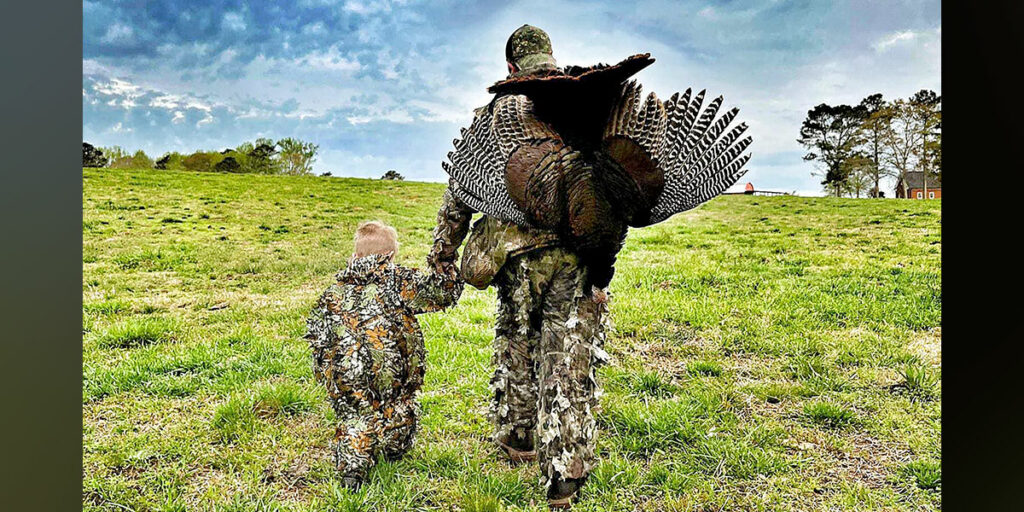Attendees at last week’s Alabama Legislative Sportsmen’s Caucus (ALSC) heard some impressive numbers about outdoor recreation in Alabama from Commissioner Chris Blankenship of the Alabama Department of Conservation and Natural Resources (DCNR).
The third annual luncheon sponsored by the ALSC is designed to bring outdoors organizations and constituents together with Alabama’s legislators to discuss issues important to the outdoors community. After an introduction by Lt. Gov. Will Ainsworth, Blankenship explained how outdoor recreation affects our lives in Alabama.
“You see all the different groups around the tent, from the Alabama Mountain Lakes Tourist Association to Black Belt Adventures to the Coastal Conservation Association, Alabama Power and all the divisions inside the Conservation Department,” Blankenship said. “When you get everybody gathered up, you can see how big an impact that hunting and fishing have on our state and how many organizations really cherish keeping abundant game and fish, and people having access to those resources. We want all the members of the Legislature to be members of the Alabama Legislative Sportsmen’s Caucus. It doesn’t matter if you’re from a rural area, an urban area or the suburbs, constituents in those areas hunt and fish, bike, bird-watch, hike and enjoy the outdoors.”
Hunting, fishing and outdoors recreation has a significant economic impact in Alabama to the tune of $14.6 billion. Deer hunting alone accounts for a $1-billion economic impact.
“I was looking at the statistics about how many people work in the outdoors industry in the state,” Blankenship said. “It’s about 135,000. If everybody who lives in Prattville worked in the hunting and fishing industry and everybody who lives in Tuscaloosa worked in the hunting and fishing industry, we’d still have to put out the ‘help wanted’ sign because there are that many people in Alabama whose jobs depend on quality hunting, fishing and outdoor recreational opportunities in our state. We have large companies like Polaris, Remington, Pradco and Kimber plus thousands of small businesses that rely on quality hunting and fishing and a clean environment for their continued success. It is critical that all of us work together to conserve and enhance the natural resources of Alabama. I think that tells you how much this group contributes to the economy of our state, not to mention the contribution to our great way of life in Alabama to be able to work and play here. So, I think it’s critical to keep the Legislature informed about issues that involve hunting, fishing and outdoors recreation, and to have them all part of the caucus so we can have events like this and share information.”
This year’s ALSC has three new co-chairs in the Legislature. Rep. Danny Crawford (R-Athens) and Rep. Mike Jones (R-Andalusia) will be the new leaders in the House. In the Senate, Sen. Clay Scofield (R-Guntersville) assumes a leadership role, while Sen. Del Marsh (R-Anniston) returns for another year as co-chair.
“It’s an honor to chair the Sportsmen’s Caucus in the House,” Rep. Crawford said. “We appreciate all the sponsorships from the groups represented here, and I’m encouraged about the turnout. Because of what the Caucus is doing, it gives us an opportunity to network with about 2,000 other legislators across the country.”
Crawford said that networking made him realize that many states are dealing with issues similar to Alabama, including access to land for outdoors use, chronic wasting disease (CWD) and the decline in the number of hunting licenses sold.
“We have similar problems,” he said. “Some of the states are working on these issues. Somebody from another state who has worked on this and has an idea, we have a chance to couple with that idea and get it done in Alabama. Last year, several of us were able to go to New Hampshire. We attended three days of programs that dealt with some of the problems we’re dealing with today. We have another summit scheduled in November in Georgia.”
Bee Frederick, the Southeastern States Director for the Congressional Sportsmen’s Foundation, and Alabama Conservation Advisory Board member Patrick Cagle organized the luncheon on the lawn at the State Capitol.
“The Alabama Legislative Sportsmen’s Caucus continues to grow,” Frederick said. “We’ve had a renewed effort over the last few years, and the Caucus has really established itself in the Statehouse now. We’ve had good growth at this event now for the third year. We had between 400-500 people at the event with more than 80 legislators in attendance. It also had strong representation from the outdoors community, which is what we want. We want this to be a show of force for the conservation community here in Alabama, providing a united front on the issues that are important to sportsmen and women.”
The ALSC celebrated its 10th anniversary at last year’s luncheon, and Frederick expects at least 100 of Alabama’s 140 legislators will be members of the Caucus before the session ends this year.
“We want the Caucus here in Alabama to be a nexus for sportsmen and women,” Frederick said. “The Caucus exists to educate and inform legislators about the issues that are important to us. And we want to use the caucus to promote those issues in the Legislature, and make sure the people making those decisions are informed.”
ALSC is a part of the National Assembly of Sportsmen’s Caucuses. That is staffed by the Congressional Sportsmen’s Foundation (CSF), which also provides support staff to the largest bipartisan caucus, the Congressional Sportsmen’s Caucus, in Congress in Washington, D.C. CSF’s mission is to work with Congress and state legislatures to protect and advance hunting, angling, recreational shooting and trapping.
Frederick said CSF is working on a number of federal issues in Congress that will affect the outdoors community. This includes implementation of the Farm Bill and Modern Fish Act from 2018 and, in this current Congress, Recovering America’s Wildlife Act, Pittman-Robertson Modernization, chronic wasting disease, and others. He said one of the issues that the hunting community has grown increasingly concerned about is CWD. CSF is working with members of the Congressional Sportsmen’s Caucus on several CWD-related bills which would provide funding for state agencies grappling with the disease and would also encourage studies by the National Academy of Sciences and other research.
Frederick also said the Trump administration, through the Department of the Interior and the Department of Agriculture, has worked to open access for outdoor recreation throughout the country.
“They’ve done that through secretarial orders and Senate Bill 47, which we were heavily involved in,” he said.
Senate Bill 47, otherwise known as the John D. Dingell Jr. Conservation, Management and Recreation Act. The act eases restrictions on outdoor recreational use on public land. CSF’s priority provisions include:
Permanently reauthorizing the Land and Water Conservation Fund (LWCF) with 3% or $15 million – whichever is greater – of annual appropriations made available for the purpose of securing additional access for hunting, fishing, recreational shooting, and other outdoor related activities (Making Public Lands Public Initiative). Recent studies estimate there are nearly 10 million acres of public lands in the west that are open to sporting activities, but the general public is currently unable to access these parcels due to a number of reasons.
Requiring Bureau of Land Management (BLM) and U.S. Forest Service (USFS) lands to be open for hunting, fishing, and recreational shooting unless specifically closed.
Directing the NPS, BLM, USFS, and U.S. Fish and Wildlife Service to develop strategies for providing access to areas where hunting, fishing, target shooting and other recreation are allowed but cannot be reasonably accessed by the public.
Providing additional waterfowl hunting opportunities for veterans and youth, and provides flexibility to the Secretary of the Interior, in coordination with the state and flyways, to establish January 31st at the closing date for ducks, mergansers, and coots.
Frederick said the turnout from the Alabama legislators and the organizations connected to the outdoors was an encouraging sign.
“We had 15 different sportsmen’s organizations represented today, plus the Alabama DCNR,” he said. “It was a great event for the sportsmen’s organizations. We had people from the Gulf Coast to the mountains and everywhere in between. Again, our goal is to provide the venue for the sportsmen’s communities and the sportsmen’s groups to interact with the legislators, who are making policy decisions based on sound science. I really appreciate Commissioner Chris Blankenship and the organizations here for supporting this event and allowing us to do what we do.”
David Rainer is an award-winning writer who has covered Alabama’s great outdoors for 25 years. The former outdoors editor at the Mobile Press-Register, he writes for Outdoor Alabama, the website of the Alabama Department of Conservation and Natural Resources.




